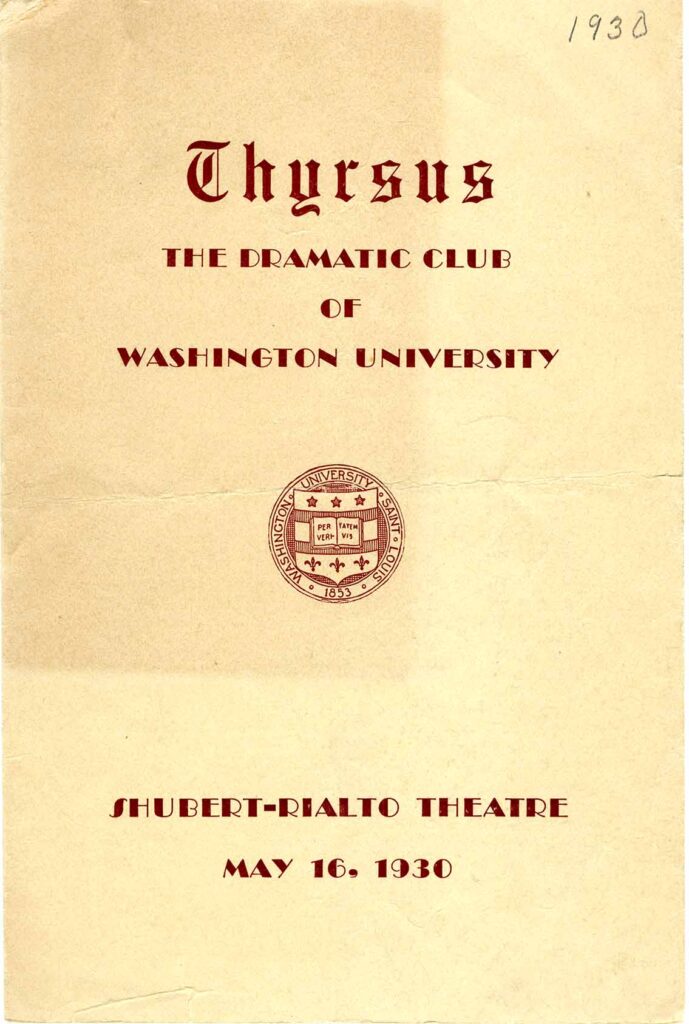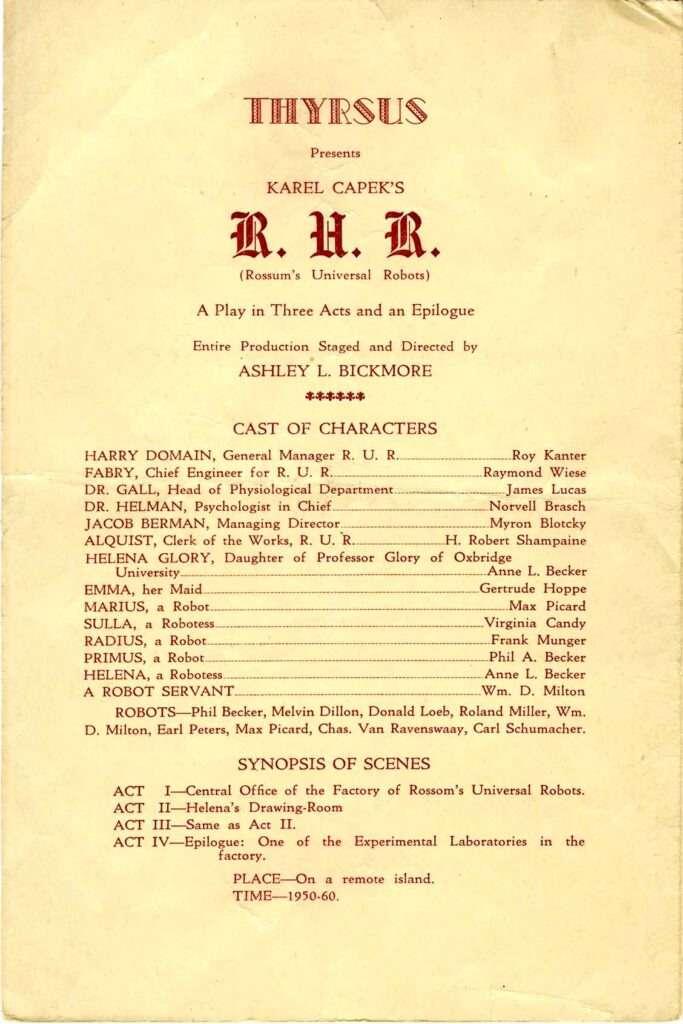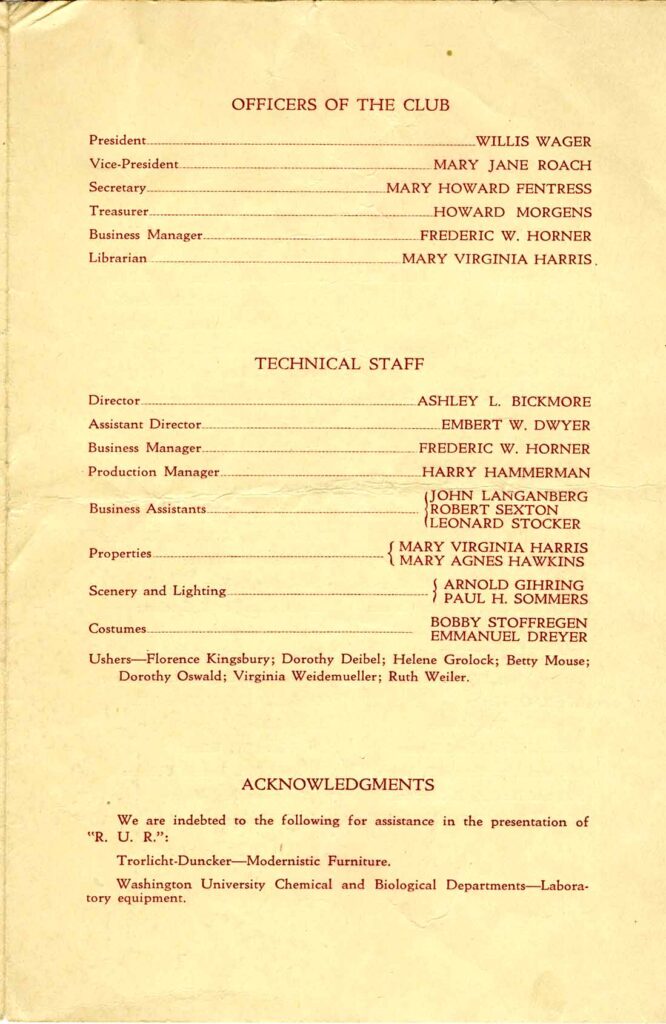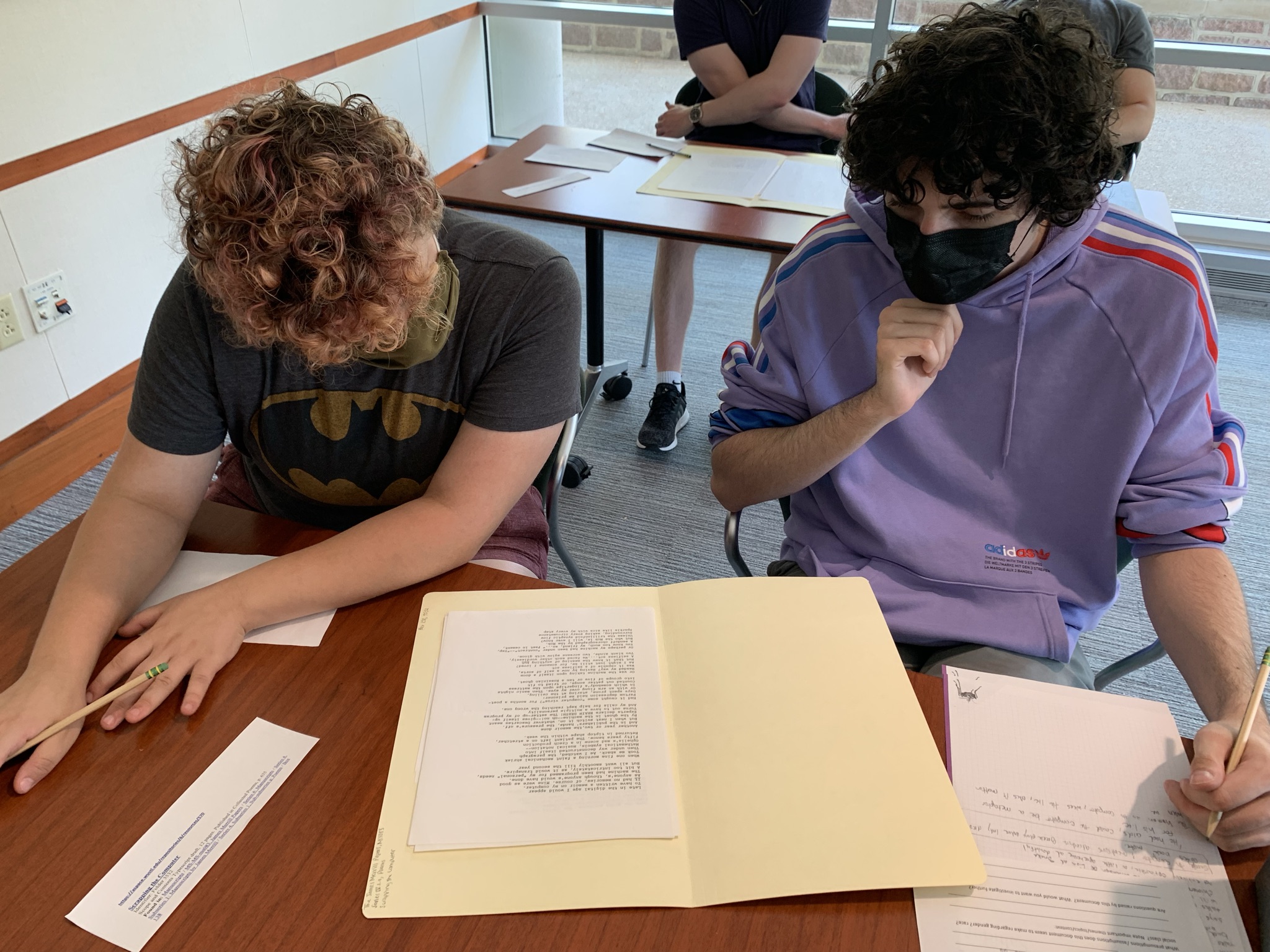
Cyborgs in History: Spotlight on a Visit to Special Collections
What do an IBM advertisement, poetry by Howard Nemerov, and a Thyrsus student play from 1930 have in common? They are all items that students in Assistant Professor Uluğ Kuzuoğlu’s class, Cyborgs in History: From Cybernetics to Artificial Intelligence, examined when visiting the Julian Edison Department of Special Collections in November 2021.
Professor Kuzuoğlu, who teaches in the Department of History, states in his course description:
“Defying the separation between humans and machines, cyborgs have been critical to sciences, humanities, pop culture, feminism, afrofuturism, and queer studies, among many other fields of inquiry .… [The course will take us on] a deep dive into the worlds of scientists, scholars, artists, and ordinary people to discover the cultural meanings of cyborgs across time and space.”
Although tracking cyborgs across disparate fields may seem daunting at first, all of these topics and more can be found in the vast range of materials in Special Collections.
Together with professor Kuzuoğlu, the Special Collections staff identified items from across many collections that highlighted different aspects of computer and cybernetic history. Below are a few examples of what the class explored.
From the D.B. Dowd Modern Graphic History Library, a 1969 brochure for the IBM Company illustrated by Cliff Condak allowed students to consider how computers were represented in visual media and advertising.
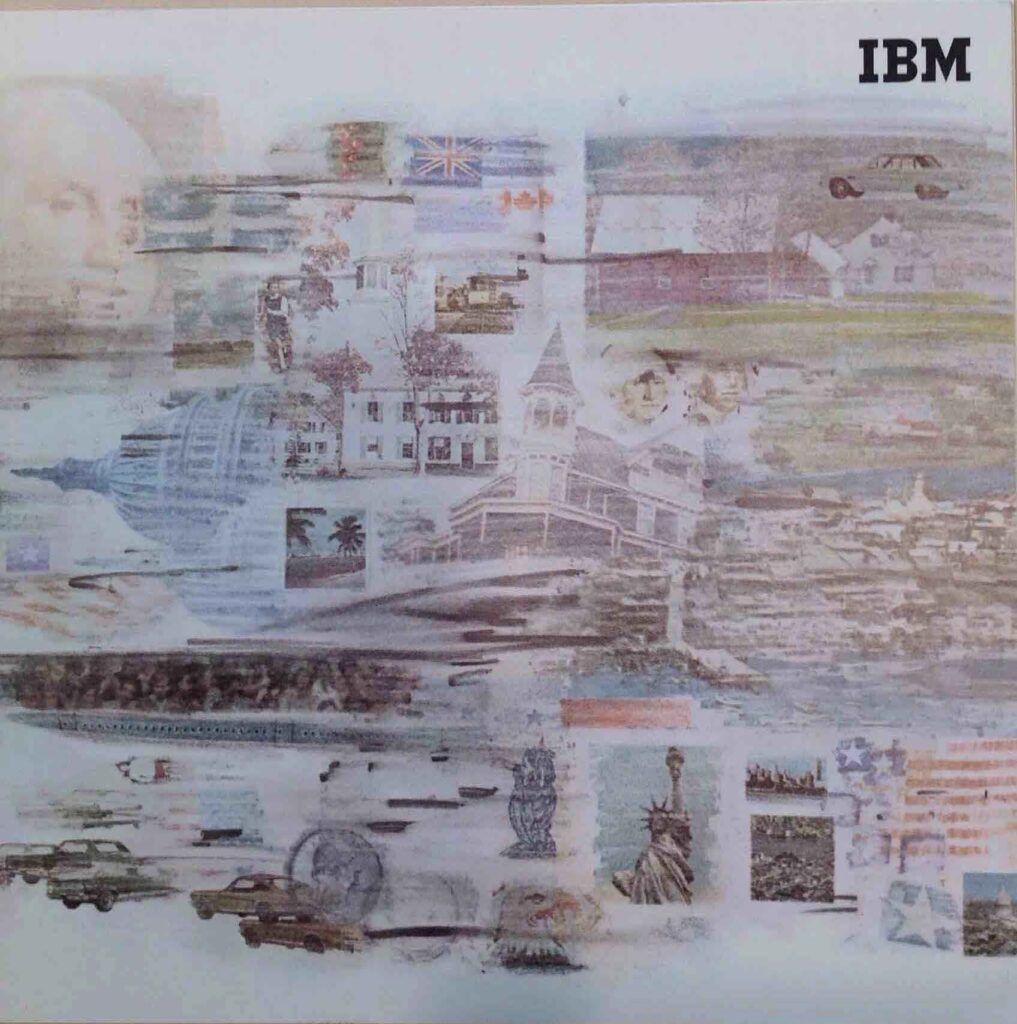
Many students were interested in the history behind this 1955 model of the first IBM 702 computer installed at the Monsanto headquarters in St. Louis. This artifact is part of the Monsanto archives, in the local history collecting area of Special Collections.
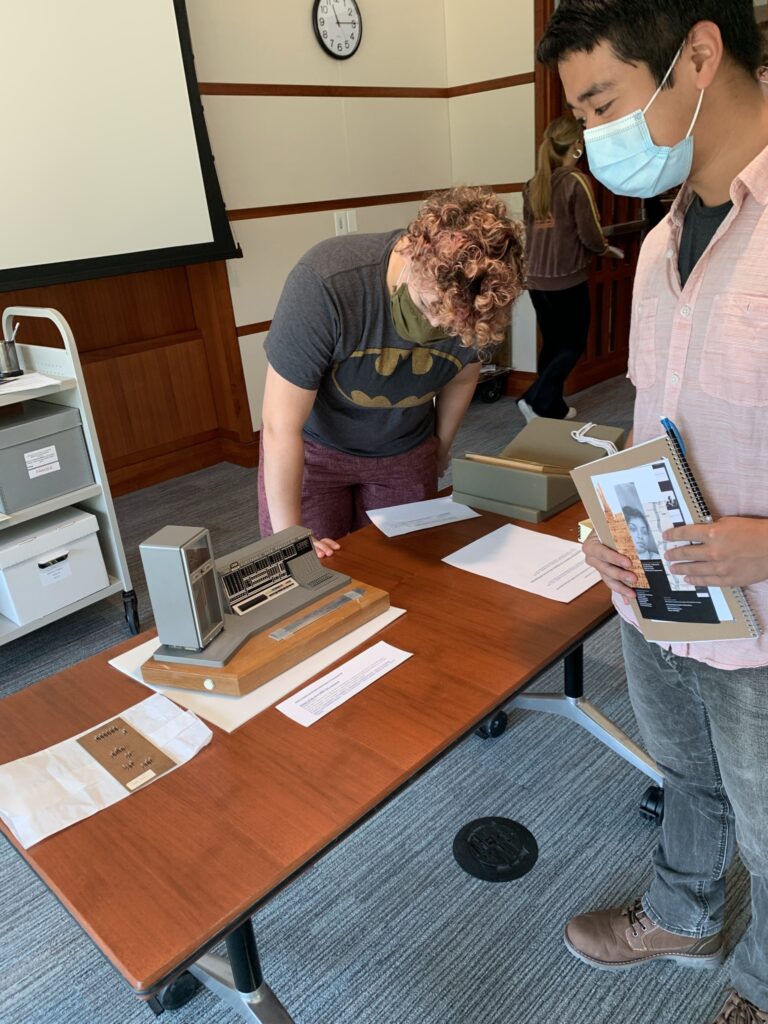
Although poetry and cyborgs may seem an unusual pairing, several authors in the Modern Literature Collections wrote on this theme, including May Swenson (“Robots of India”), Carol Bergé (“Poem to Robot Man,” 1974-1975), and James Merrill (“Scrapping the Computer”).
In addition to writing the poem “Cybernetics,” Howard Nemerov also spoke on the subject of computers and poetry at a 1969 Cornell University symposium.
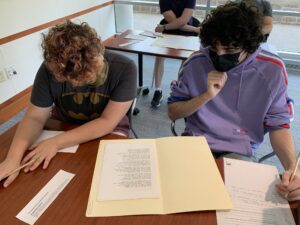
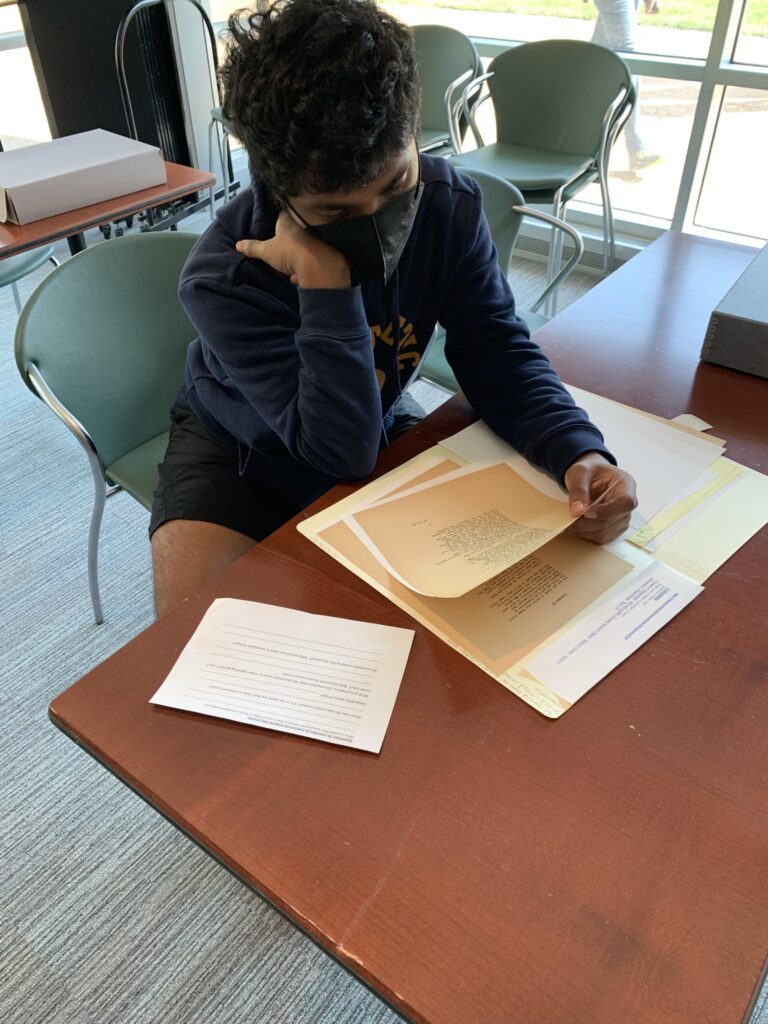
Another literary item the class studied was a 1930 WashU student theater production of R.U.R. (Rossum’s Universal Robots). Written in 1921 by Czech playwright Karel Čapek, this play is credited with introducing the word ‘robot’ into the English language. Although no photographs of the campus production exist, University Archives has an original program in the Thyrsus Collection.
The Department of Special Collections welcomes classes from all academic disciplines. If you are teaching a course on any topic and are interested in enhancing your students’ experience using original documents and sources, please reach out to Special Collections at spec@wumail.wustl.edu. The format can be flexible, ranging from in-person sessions to virtual programs, designed to fit the needs of your course.

